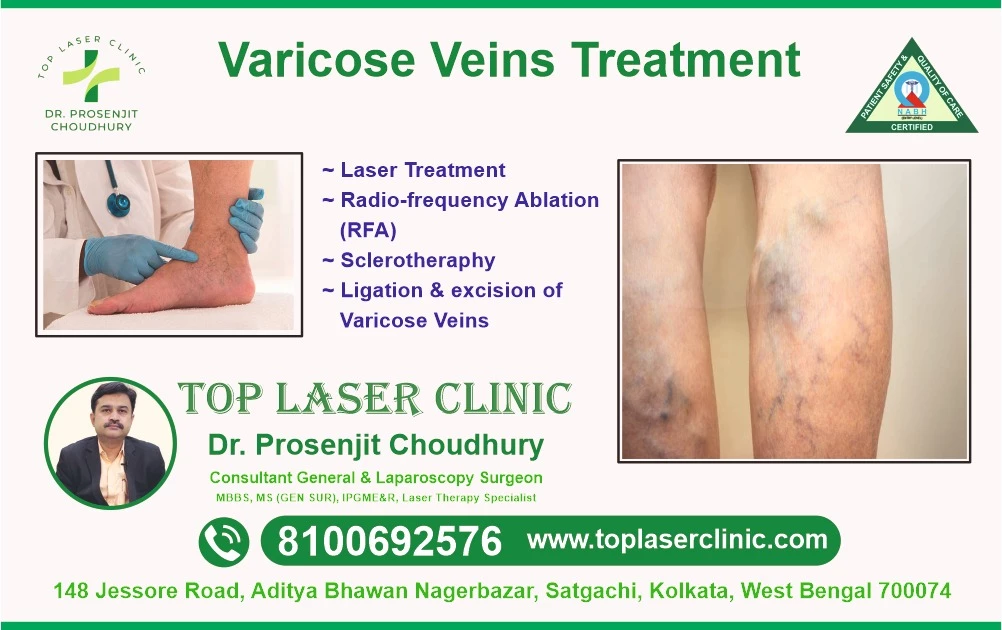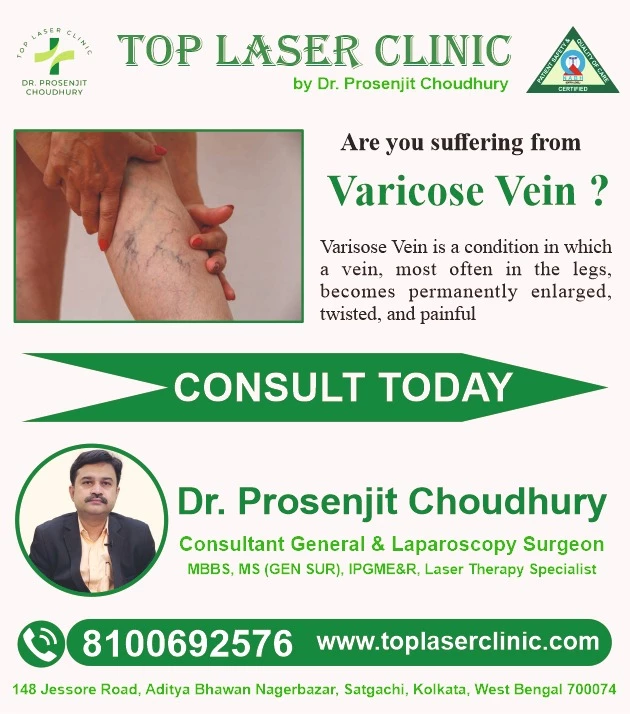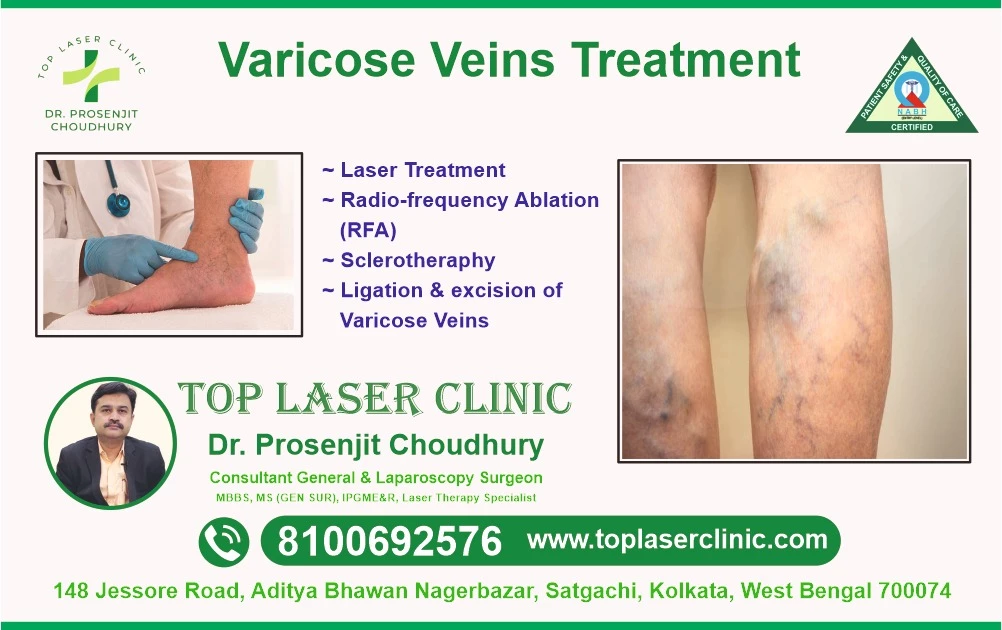
Basic Information about Varicose Vein : Varicose veins are a common condition that affects millions of people worldwide. While they can occur in anyone, they are more common among women and typically affect the legs. Varicose veins occur when the valves in the veins weaken or malfunction, causing blood to pool and flow backward. This can lead to the veins becoming large, twisted and bulging. This condition can cause discomfort and pain, swelling, aching or throbbing in the affected area, and may even lead to more serious complications such as blood clots or ulcers.
Table of Contents
Basic Information about Varicose Vein
If you are suffering from varicose veins, it is important to seek medical attention and consider treatment options. Ignoring the condition can lead to more severe symptoms, affect your quality of life and increase the chances of complications in the long run. There are various treatments available for varicose veins, including lifestyle changes, compression stockings, and medical procedures such as vein stripping or laser treatment. It is recommended that you consult with a qualified healthcare professional to determine the best course of action for your specific case.

Remember, varicose veins are a common and treatable condition that should not be ignored. If left untreated, it can lead to more serious complications that could affect your overall health and quality of life. Seek treatment from a qualified healthcare professional as soon as possible. Remember to maintain a healthy weight, exercise regularly, and avoid sitting or standing for prolonged periods to reduce your chances of developing varicose veins.
In summary, varicose veins are a common and treatable condition that can cause discomfort and serious complications if left untreated. It is important to seek medical attention and consider treatment options. Lifestyle changes such as maintaining a healthy weight, exercising regularly and avoiding sitting or standing for prolonged periods can help reduce the chances of developing varicose veins. Remember that seeking treatment for varicose veins is not only important for managing the condition but also can relieve discomfort and ensure a good quality of life. By adopting healthy habits and seeking treatment for varicose veins, you can improve your overall wellness and avoid the discomfort and complications associated with this condition. In conclusion, taking care of your cardiovascular health should be a priority in order to prevent varicose veins as well as other conditions like deep vein thrombosis. Maintaining healthy habits and seeking medical attention when necessary can greatly improve your overall wellbeing. Take action now to manage your varicose veins and improve your overall health. Don’t let varicose veins affect your quality of life. Incorporate healthy habits into your routine and consider treatment options if necessary to manage varicose veins and improve your overall wellness. Remember, prevention is always the best medicine. Always consult with your healthcare provider before making lifestyle changes or undergoing any medical treatments.
Thank you for taking the time to learn about varicose veins and how to manage them. Remember to prioritize your cardiovascular health and seek medical advice if you suspect the presence of varicose veins. Take care of your body and listen to its signals. Your body is a temple and it’s important to keep it healthy. Maintaining a healthy lifestyle is crucial for preventing and managing varicose veins, as well as other cardiovascular conditions. Making healthy choices and seeking regular medical check-ups can go a long way in ensuring your overall wellbeing. Stay active, eat a balanced diet and manage your stress levels to maintain optimal cardiovascular health.

Diet for Varicose Vein:
While there is no specific diet that can cure varicose veins, maintaining a healthy diet can help support overall vein health and manage the symptoms associated with varicose veins. Here are some dietary recommendations that may be beneficial:
- 1. Fiber-Rich Foods: Consuming a diet high in fiber can help prevent constipation, which can contribute to increased pressure on the veins. Include foods such as whole grains, fruits, vegetables, legumes, and nuts in your diet.
- 2. Antioxidant-Rich Foods: Antioxidants help protect the veins and improve overall circulation. Include foods rich in antioxidants, such as berries, citrus fruits, leafy greens, bell peppers, and dark chocolate.
- 3. Omega-3 Fatty Acids: Omega-3 fatty acids have anti-inflammatory properties and can support cardiovascular health. Include sources of omega-3 fatty acids, such as fatty fish (salmon, mackerel, sardines), flaxseeds, chia seeds, and walnuts in your diet.
- 4. Vitamin C: Vitamin C plays a role in collagen synthesis, which helps maintain the strength and elasticity of blood vessels. Include foods like citrus fruits, strawberries, kiwi, bell peppers, and broccoli to ensure an adequate intake of vitamin C.
- 5. Potassium-Rich Foods: Potassium helps regulate fluid balance and can reduce water retention and swelling. Include foods like bananas, avocados, spinach, sweet potatoes, and tomatoes, which are good sources of potassium.
- 6. Hydration: Stay adequately hydrated by drinking plenty of water throughout the day. Proper hydration helps maintain healthy blood circulation and can reduce the risk of blood clot formation. 7. Limit Salt Intake: High sodium intake can contribute to water retention and swelling. Reduce your consumption of processed and packaged foods, as they are often high in sodium. opt for fresh, whole foods and use herbs and spices to flavour your meals instead of salt.
- 8. Maintain a Healthy Weight: Excess weight can put additional strain on your veins. Maintain a healthy weight through a balanced diet and regular exercise to reduce the pressure on your veins.
It’s important to note that while these dietary recommendations can support overall vein health and symptom management, they do not replace medical treatment or address the underlying causes of varicose veins.
Damien Gutierrez